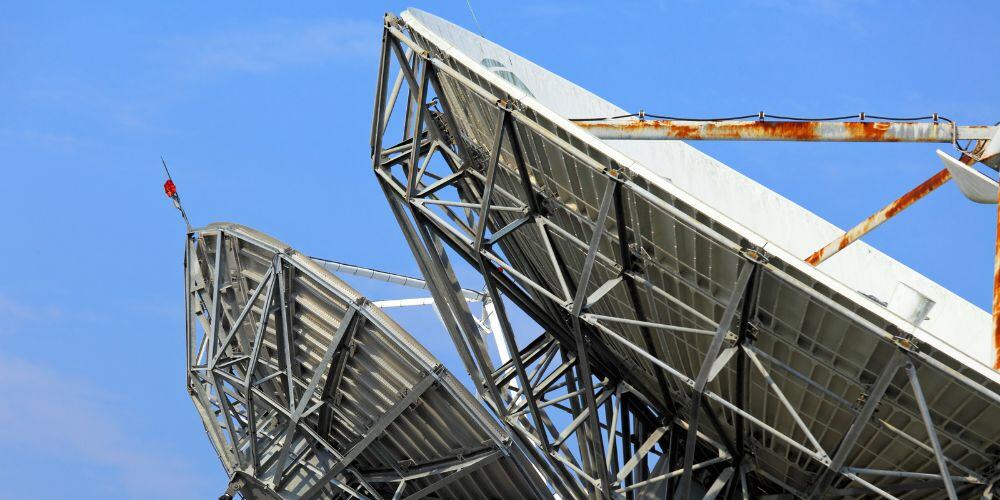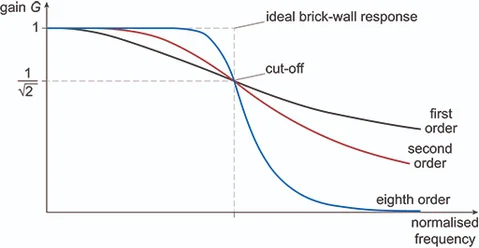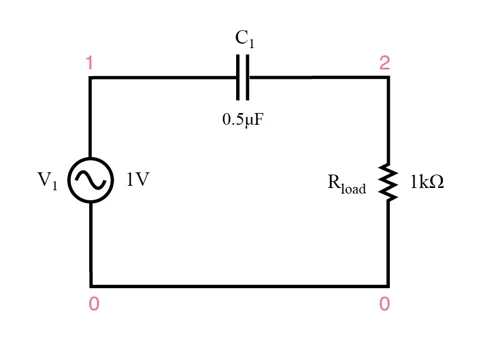Introduction High pass filters (HPFs) play a critical role in RF systems by allowing high-frequency...
A Comprehensive Guide to RF Filters: Types and Uses

RF filters, or radio frequency filters, are essential components in modern communication systems, designed to regulate frequency flow by allowing specific signals to pass while blocking unwanted interference. These filters ensure reliable and high-quality signal transmission, making them indispensable in industries such as telecommunications, aerospace, military, and consumer electronics. Whether used in satellite communications, radar systems, or wireless networks, RF filters help maintain system efficiency and prevent signal degradation.
Among the various types of RF filters, high pass filters play a crucial role in eliminating low-frequency noise while preserving higher-frequency signals. This makes them particularly useful in applications that require improved signal clarity and precision, such as high-speed data transmission and advanced communication systems. By understanding the functionality and benefits of high pass filters, industries can optimize performance and enhance the reliability of their RF systems.
This article explores the different types of RF filters, with a specific focus on high pass filters and their diverse applications across industries. It will also discuss how tailored RF filter solutions can address unique system requirements, ensuring optimal performance in demanding environments.
What Are RF Filters?
RF filters are frequency-selective devices that regulate signal transmission by either allowing or blocking specific frequency ranges. These filters are essential for minimizing interference, reducing noise, and ensuring clear, high-quality communication across various applications. By precisely controlling which frequencies pass through a system, RF filters enhance signal integrity and overall system performance.
Industries that depend on RF filters include telecommunications, where they are used in cellular networks, satellite communications, and radio broadcasting to maintain signal clarity and prevent cross-channel interference. In military and aerospace applications, RF filters play a critical role in secure communications, radar systems, and electronic warfare, ensuring reliable performance in mission-critical environments. Consumer electronics, such as wireless devices and GPS systems, also rely on RF filters to enhance connectivity and reduce signal disruptions.
The functionality of RF filters is achieved through electronic components such as inductors and capacitors, which determine cutoff frequencies and shape the filter’s response. These components work together to optimize performance based on application requirements, allowing RF filters to be tailored for specific use cases, from wideband filtering to precision signal processing.
Types of RF Filters
Bandpass Filters
Bandpass filters are specialized RF filters designed to allow a specific range of frequencies to pass while attenuating signals outside of that range. By isolating desired frequencies and rejecting unwanted interference, these filters play a crucial role in maintaining signal integrity in various high-frequency applications. They are widely used in wireless communication systems, satellite transmissions, and radar technologies, where precise frequency selection is essential for optimal performance.
In practical applications, bandpass filters help enhance signal clarity in LTE and Wi-Fi networks by isolating target frequencies, reducing interference, and improving overall transmission efficiency. In satellite and radar systems, they enable accurate signal processing by filtering out extraneous frequencies that could compromise system functionality.

Bandpass filters come in various designs, including Chebyshev and Butterworth configurations, each offering unique characteristics in signal attenuation and cutoff sharpness. Chebyshev filters provide a steeper roll-off, making them ideal for applications requiring high selectivity, while Butterworth filters ensure a smooth frequency response with minimal distortion. The choice of filter design depends on the specific industry requirements, balancing factors such as bandwidth, insertion loss, and signal fidelity.
Low Pass Filters
Low pass filters are essential RF components that allow frequencies below a designated cutoff to pass through while attenuating higher frequencies. By selectively blocking unwanted high-frequency signals, these filters help maintain signal integrity and prevent interference in various electronic and communication systems.
In audio applications, low pass filters are commonly used to eliminate high-frequency noise, improving sound clarity in speakers and recording equipment. In RF systems, they play a crucial role in suppressing harmonics and filtering out unwanted high-frequency interference that could degrade performance. This makes them particularly valuable in applications such as satellite communication, where precise frequency control is essential for maintaining reliable data transmission.
Low pass filters also enhance stability in RF devices by minimizing signal distortion and ensuring cleaner transmissions. They are widely used in automotive radar systems, helping refine radar signals for accurate object detection and navigation. Their ability to reduce noise while preserving essential low-frequency signals makes them indispensable in environments where signal fidelity is critical.
High Pass Filters
High pass filters are a critical element in RF systems. Their primary function is to allow high-frequency signals to pass through while blocking or attenuating lower frequencies. This selective filtering is essential for maintaining signal integrity and ensuring reliable transmission, particularly in communication and radar systems where low-frequency interference can disrupt operations.
High pass filters are widely used in telecommunications, Wi-Fi networks, and radar applications to improve signal clarity and enhance data transmission rates. In telecommunications, they help maintain clear voice and data communication by filtering out unwanted low-frequency noise. In Wi-Fi systems, they support high-speed connectivity by ensuring only the necessary frequency bands are transmitted. Radar systems also rely on high pass filters to enhance target detection by eliminating background interference.

These filters can be designed with various performance characteristics, such as low insertion loss and sharp cutoff slopes, to meet the specific demands of different industries. Customized high pass filters are often developed for specialized applications, optimizing performance based on factors such as bandwidth, power handling, and environmental conditions. Their adaptability makes them critical for applications requiring precise frequency control and interference suppression.
Applications of High Pass Filters
Telecommunications
High pass filters play a crucial role in the telecommunications industry by blocking low-frequency interference and ensuring the seamless transmission of high-frequency signals. By preventing distortion and maintaining signal integrity, these filters enhance the performance of cellular networks, Wi-Fi systems, and satellite communications, leading to improved connectivity and higher data transmission rates.
In 5G networks, high pass filters help reduce signal noise, allowing for faster and more reliable connections. They enable efficient spectrum utilization, minimizing interference from lower-frequency bands that could degrade performance. Similarly, in satellite communications, these filters ensure that only the intended frequency ranges are transmitted and received, preventing signal overlap and enhancing overall system efficiency.
As the demand for high-speed, low-latency communication continues to grow, high pass filters remain essential components in modern telecommunication infrastructure, optimizing performance in both terrestrial and space-based networks.
Military & Aerospace
In military and aerospace applications, high pass filters are essential for maintaining clear, high-frequency signal transmission in environments where precision and reliability are paramount. These filters isolate critical signals used in radar, navigation, and secure communications, ensuring optimal performance in high-stakes operations.
In radar systems, high pass filters enhance target detection and tracking by removing low-frequency noise that can obscure critical signals. This improves accuracy in surveillance, missile guidance, and defense operations. Likewise, in military communication networks, these filters prevent low-frequency interference that could compromise secure transmissions, enabling clear and reliable communication in the field.
Aerospace systems require high pass filters capable of withstanding extreme conditions, including temperature fluctuations, radiation, and high-vibration environments. Whether integrated into satellites, avionics, or deep-space exploration systems, these filters ensure stable and high-performance signal transmission, making them indispensable for modern defense and aerospace technologies.
Consumer Electronics
High pass filters are integral to consumer electronics, enhancing the performance of smartphones, Wi-Fi routers, and antennas by ensuring clear and efficient signal transmission. In smartphones, these filters help isolate high-frequency signals, improving reception, call quality, and data transfer speeds. They are also essential in smart home devices and IoT systems, where reliable wireless communication is crucial for seamless connectivity and automation.
By filtering out low-frequency noise, high pass filters contribute to faster data rates, reduced signal interference, and improved energy efficiency. In battery-powered devices, they help optimize power consumption by ensuring only necessary signals are processed, extending battery life. As consumer technology continues to evolve, high pass filters remain a key component in delivering high-performance wireless communication and enhancing overall user experiences.
Choosing the Right RF Filter
Selecting the right RF filter requires careful consideration of several key performance factors to ensure optimal system efficiency. The cutoff frequency is a primary concern, as it determines which signals are allowed to pass and which are attenuated. Insertion loss, which measures the reduction in signal strength as it moves through the filter, is another critical factor, as excessive loss can degrade overall system performance.
Other important considerations include frequency range, bandwidth, and return loss, all of which impact signal integrity and transmission efficiency. To meet the diverse needs of industries such as telecommunications, aerospace, and defense, customized RF filters are often necessary. Companies like Q Microwave specialize in designing tailored solutions to address specific performance requirements.
As technology advances, the demand for scalable RF filters continues to grow, driven by emerging trends such as 5G networks, IoT expansion, and next-generation wireless communication systems. These developments underscore the need for high-performance, adaptable RF filters capable of supporting increasingly complex and high-frequency applications.
Optimize Communication Systems with Q Microwave’s Tailored RF Filters
RF filters are essential for managing frequency ranges and ensuring clear, interference-free signals in modern communication systems. Bandpass, low pass, and high pass filters each serve distinct functions, supporting a wide range of applications across telecommunications, aerospace, military, and consumer electronics.
Among these, high pass filters play a crucial role in enhancing signal clarity, improving data transmission, and minimizing interference in critical industries. Selecting the right filter is key to optimizing performance, and working with an experienced manufacturer ensures solutions tailored to specific operational needs.
For high-quality, customizable RF filters, Q Microwave provides advanced solutions designed to meet the demands of modern communication systems. Contact Q Microwave today to explore how their expertise can enhance your system’s efficiency and reliability.



